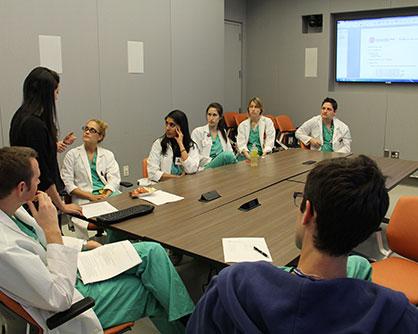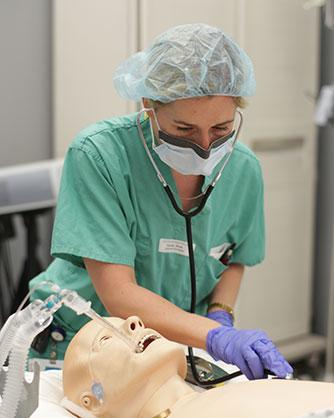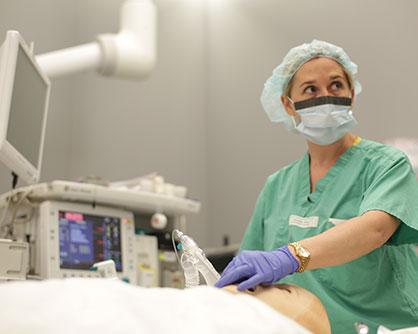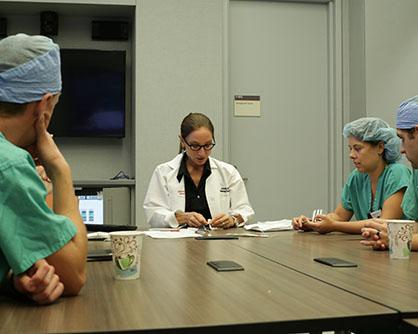SAIL offers a unique opportunity for participants to gain hands-on experience. Through a realistic simulation, residents will become more comfortable with every aspect of a surgery- from handling unexpected problems as they arise to simply talking to the patient.
Brief

A pre-simulation briefing takes place in the conference room.
At the beginning of the day, participants gather in the Conference Room for an introduction to the simulation (otherwise known as the briefing stage). During the brief, the attending physicians leading the simulation (usually two or three) will provide information sheets on the "patient" in the simulation and go over the background of the operation. They will also choose who will go into the Operating Room (OR). The remaining residents (usually up to three) will remain in the Conference Room to watch the simulation through the screens.
Simulation

Elizabeth Starker, a third year resident at WCM, said the repetition of the tasks at SAIL made her more comfortable in real-life situations.
Before the resident enters the OR, they complete the usual pre-op procedures, including hand washing and putting ongloves.
Once they enter the OR, the resident can ask the patient (life-size mannequin) about any pertinent information, such as allergies. One of the more senior residents can play the role of the patient and respond through the microphone in the Command Center so it seems as if the mannequin is talking.

Starker said the simulations helped her develop decision-making skills that she later used when interacting with real-life patients.
Once the resident starts the Simulation, there is usually a conflict thrown in—whether it's experiencing trouble with the ventilation tube or finding out they administered the wrong medication.This tests the resident's decision-making abilities and the way he/she performs under pressure, but can still ask for help.
Usually in a simulation conflict, the other residents watching from the Conference Room will rush in to assist.
De-Brief

Residents debrief following simulation training.
After the simulation, the resident goes back to the Conference Room for de-briefing. This is the chance to learn how he/she can improve. The attending physicians and the other residents discuss the simulation and offer advice and suggestions for their next surgery.
This approach fosters a dynamic and didactic learning experience for everyone involved in the simulation exercise.
The rotation lasts three months, and residents typically go through the Simulation on their own after the first month, but more senior residents still continue to use the OR for practice further into their career.


